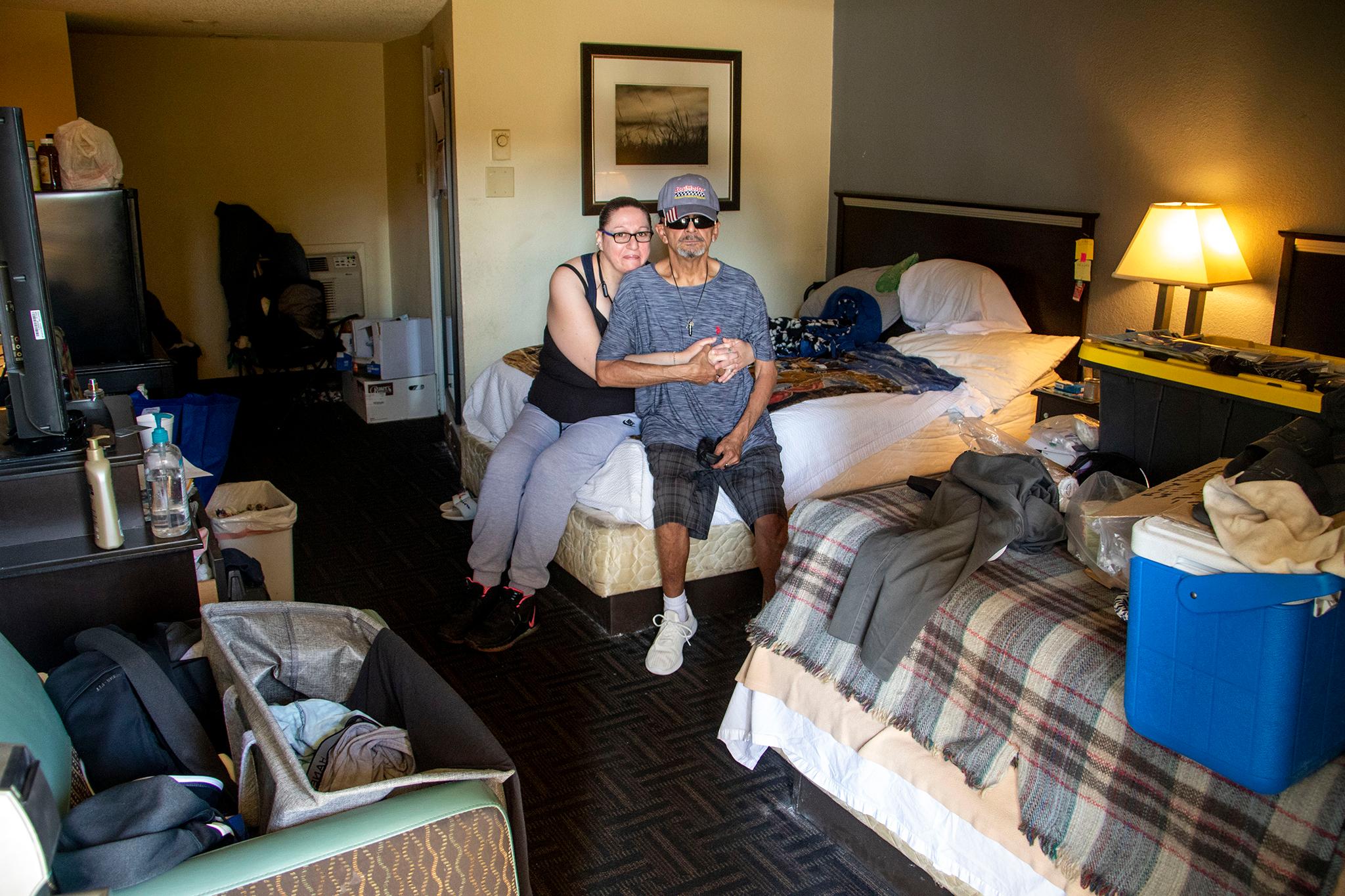On Monday night, a group of unhoused people at high risk of dying from COVID-19 told City Council they have been given less than a month to leave the Quality Inn in Jefferson Park where some have been staying since the earliest days of the pandemic.
Many said they are panicked and don't know where they will go.
The Quality Inn, at 2601 Zuni Street, has been leased by the Colorado Coalition for the Homeless, said Derek Woodbury, a spokesperson for Denver's Department of Housing Stability. It's one of several sites run by either the Coalition or the Salvation Army that the city has used to protect people during the COVID-19 emergency.
As of August 26, 153 were living there. As of September 16, none will.
"It's important to note that the Quality Inn on Zuni is not a housing site," said Woodbury. "Rather, it serves as a protective action hotel for sheltering persons experiencing homelessness."
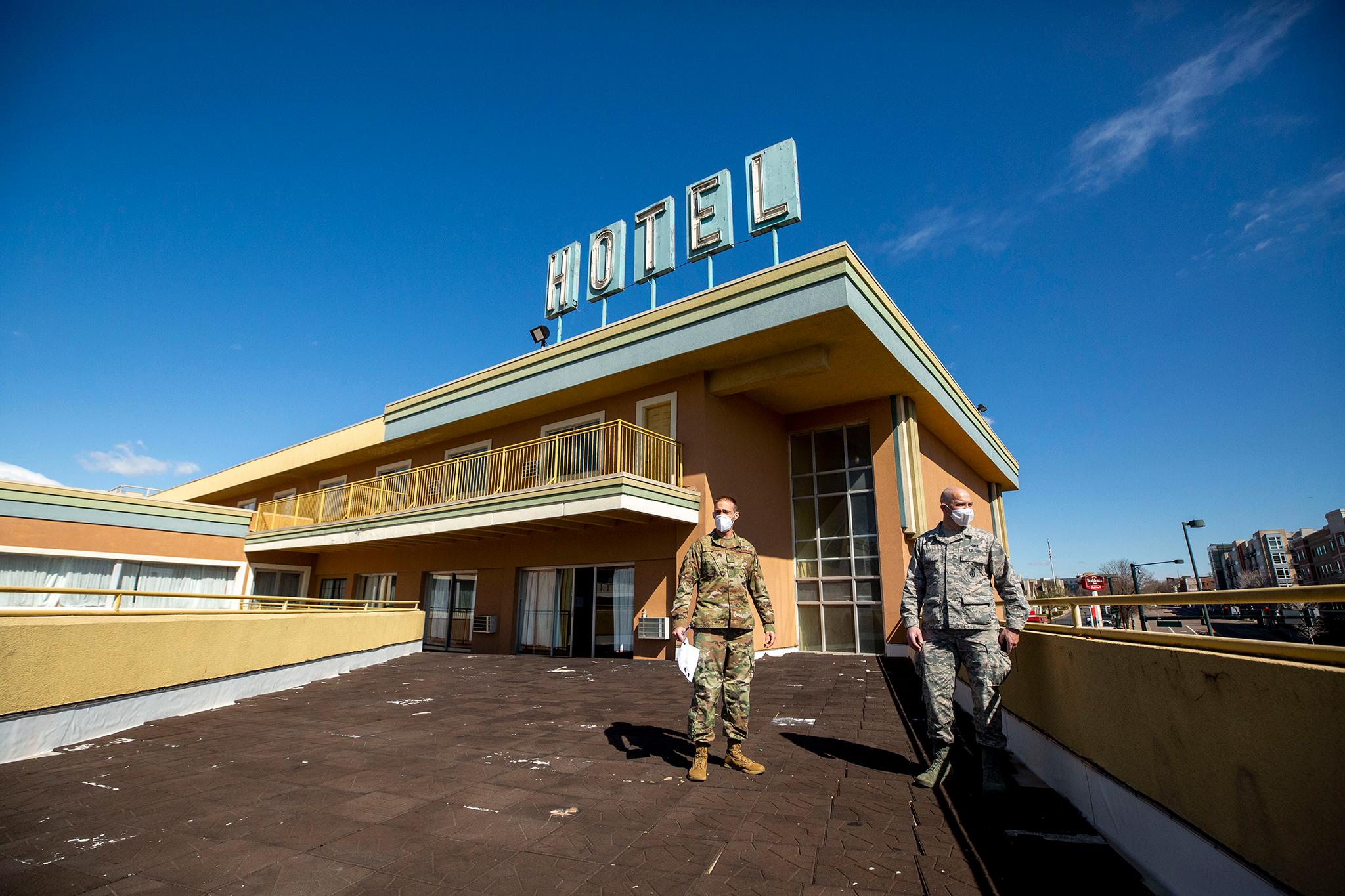
Multiple residents living there -- some for over two years -- said they believed they were going to be granted housing vouchers before they left.
A few residents said they had received them. Others said they never did.
"When I first got in the program, I thought we were going to stay in the program till we got housing," said Mikey Martinez, who had been living in hotel shelters with his wife, Dawn, since he spent months in the hospital with a respiratory infection from COVID-19.
Now, the couple has no clue where they will go. Martinez will undergo heart surgery later this week.
His doctors have told him, "I can't stay in a tent. That's how I got in the hospital before," he said. "And I can't stay in a shelter. I'd be sick again."
The couple cannot afford Denver's sky-high rent without help, and they're not able to leave town, they said, because all of his doctors are here.
"I don't know what I can do," Mikey said. "All I can do is give it to God."
Woodbury said residents received a full month's notice, as policy required, and are working with caseworkers to find new housing.
"Shelter staff are actively helping transition guests to housing, future shelter arrangements (including congregate and non-congregate shelter), plus medical and behavioral healthcare supports," Woodbury said. "We are confident that we have other options available for everyone at Quality Inn to transfer to, should they so choose."
That message is not translating to residents, who said they only heard about the move last week and that staying in congregate shelters is not an option, considering their health conditions and vulnerability to COVID-19.
According to a survey by the advocacy group Housekeys Action Network of Denver, or HAND, just under 13% of residents had housing lined up as of the end of last week, and more than 87% had no idea where they would live next.
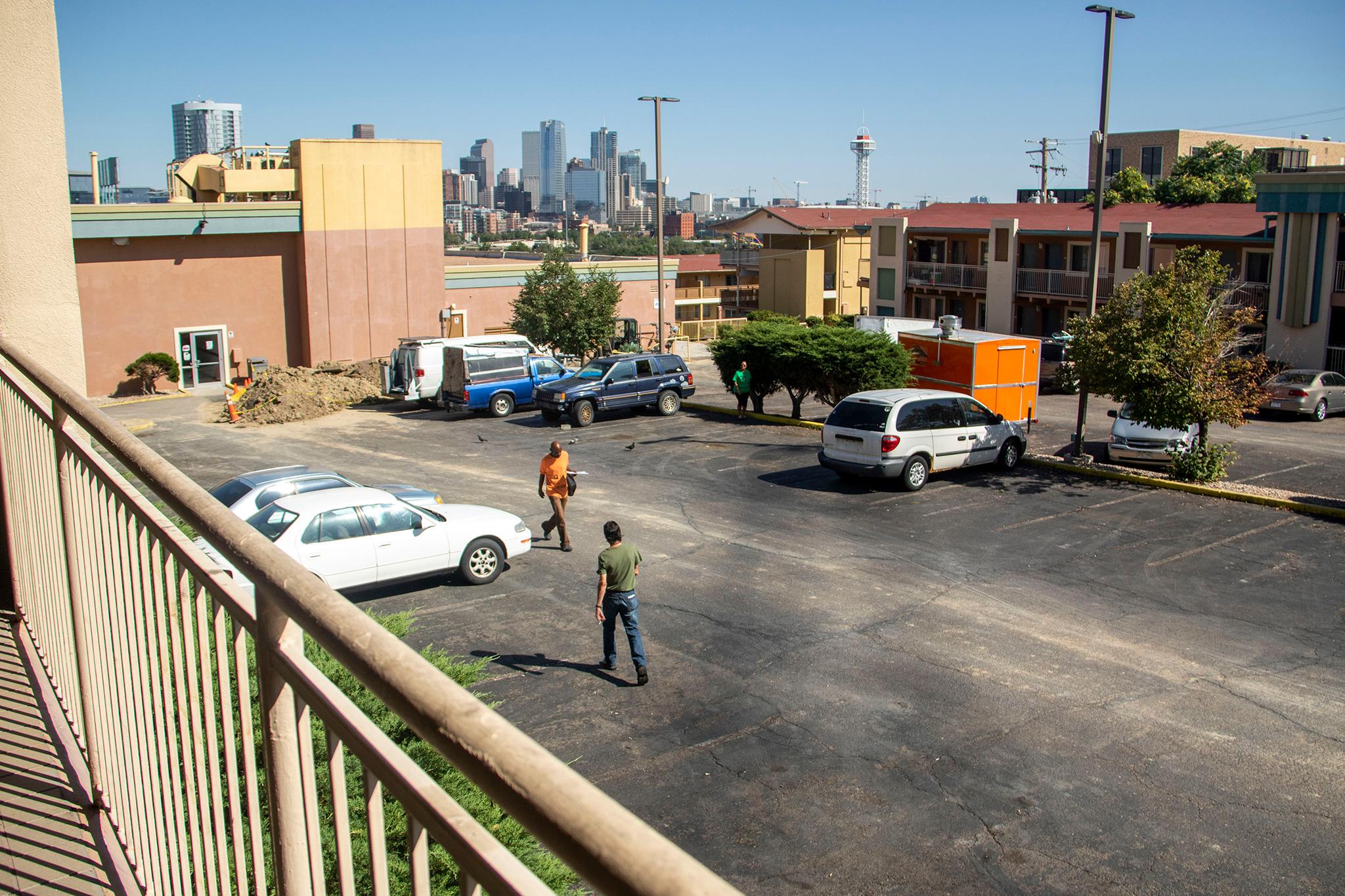
Ten of the most vulnerable residents will be moved to the Aloft Hotel, downtown, which has served as another temporary shelter during the pandemic. That hotel is only funded through December, when it is slated to close.
This emergency shelter, funded through federal COVID-relief dollars, keeps vulnerable people off the streets and out of group shelters where they would be at high risk of contracting the virus. But that money is running out, even as public health officials at the Denver Department of Public Health and Environment warn COVID cases could rise in the fall and are cautioning the public to prepare for that.
Patricia Romero-Valdez was grateful to stay at the Quality Inn after three years of homelessness, much of which she spent living in her car.
Once again, she fears she will be left without shelter.
"Nobody deserves to live like this -- to give us notice and throw us out," she said. "Homeless people are not throwaways. They shouldn't be discarded."
She received a housing voucher in April and has been struggling to find a place to move, putting in up to three applications a day and hoping something works out on time.
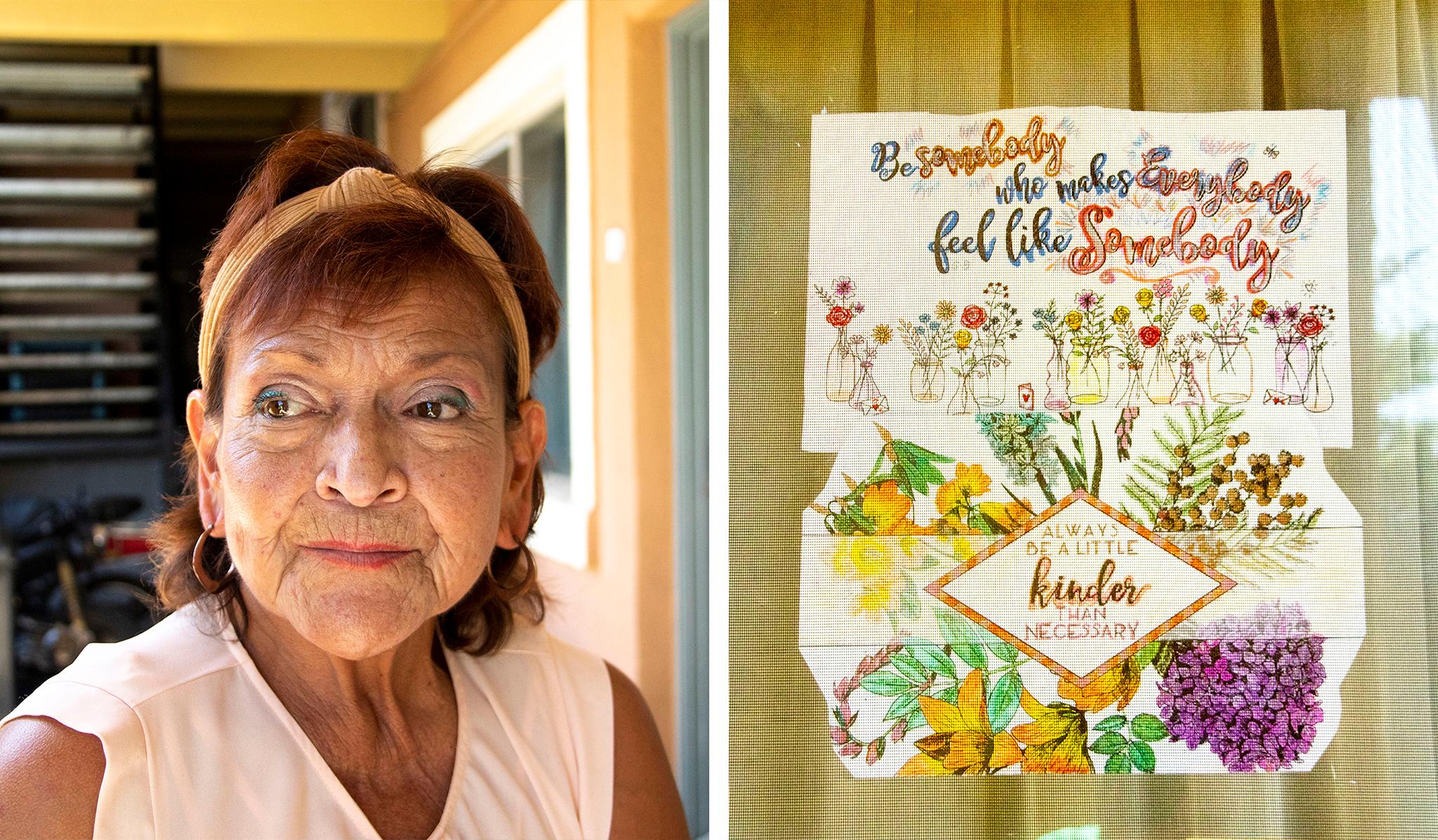
Most residents don't believe their caseworkers are helping them out.
Less than 15% of the people living at Quality Inn who were surveyed by HAND found their case managers to be helpful. Around 60% found the management to be explicitly unhelpful and nearly 26% said case managers were trying but didn't have the resources they needed.
"The case managers are worthless," said Quality Inn resident Chris Martinez, who has lived there for 26 months.
"I was out on the street," he said. "They came and brought me here and said I could stay here."
His time at Quality Inn has been challenging. He's had his belongings stolen, he said, and suffered through endless "wellness checks." He struggles to sleep because fellow residents are smoking in their rooms, he explained, and he's suffered from food poisoning.
His case manager had helped him connect with housing, but that fell through after a plumbing incident in the home he was slated to move into. Now, if he has to, he's prepared to return to the streets.
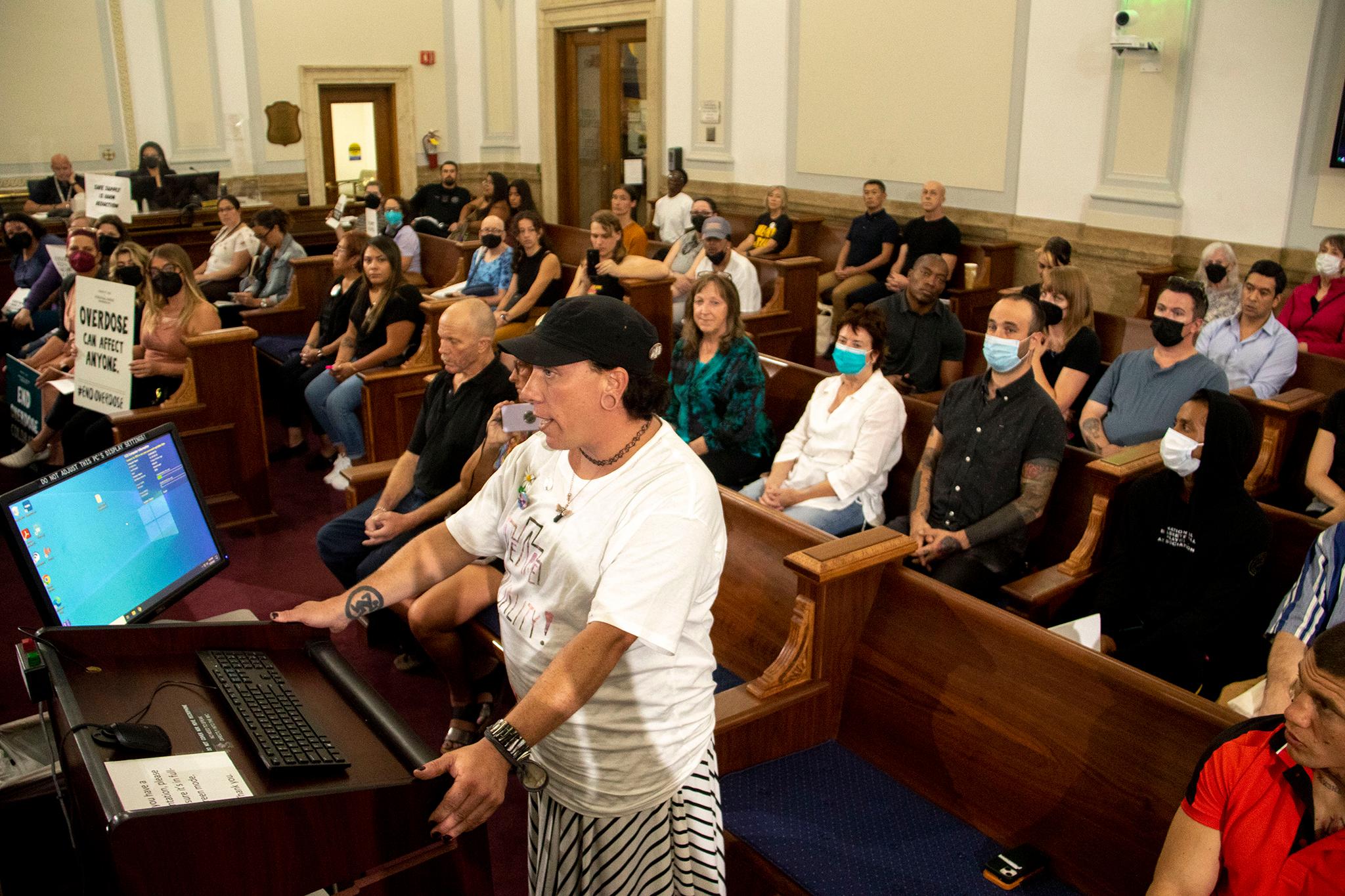
Quality Inn resident Ana Miller said the case workers at the hotel need more support to keep people from becoming homeless again.
"I would like to see somebody push the Coalition for the Homeless to bring more case managers to the site," Miller told Council. "The case managers who are there, be it they are working as hard as they can, they are extremely overwhelmed."
